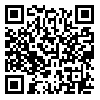Volume 16, Issue 2 (March & April 2025)
BCN 2025, 16(2): 519-532 |
Back to browse issues page
Download citation:
BibTeX | RIS | EndNote | Medlars | ProCite | Reference Manager | RefWorks
Send citation to:



BibTeX | RIS | EndNote | Medlars | ProCite | Reference Manager | RefWorks
Send citation to:
Fazeli A, Zolghadriha A, Pirzeh R, Ramezani S, Dadashi M. Effectiveness of Low-frequency rTMS and CBT in Reducing Symptoms Severity and Improving Cognitive Flexibility in Adults With OCD: A Clinical Trial. BCN 2025; 16 (2) :519-532
URL: http://bcn.iums.ac.ir/article-1-2616-en.html
URL: http://bcn.iums.ac.ir/article-1-2616-en.html
1- Department of Psychiatry, School of Medicine, Zanjan University of Medical Sciences, Zanjan, Iran.
2- Department of Educational Sciences, Faculty of Educational Sciences and Psychology, University of Mohaghegh Ardabili, Ardabil, Iran.
3- Department of Clinical Psychology, Social Determinants of Health Research Center, School of Medicine, Zanjan University of Medical Sciences, Zanjan, Iran.
2- Department of Educational Sciences, Faculty of Educational Sciences and Psychology, University of Mohaghegh Ardabili, Ardabil, Iran.
3- Department of Clinical Psychology, Social Determinants of Health Research Center, School of Medicine, Zanjan University of Medical Sciences, Zanjan, Iran.
Abstract:
Introduction: This study aims to assess and compare the effects of low-frequency (LF) repetitive transcranial magnetic stimulation (rTMS) and cognitive-behavioral therapy (CBT)on symptoms and cognitive flexibility of adults with obsessive-compulsive disorder (OCD).
Methods: This is a randomized clinical trial conducted on 24 people with OCD living in Zanjan City, Iran, in two groups of CBT (n=12) and rTMS (n=12). The CBT with exposure and response prevention (ERP) was presented at 20 sessions. The rTMS (1 Hz) was delivered at 100 resting motor thresholds using an 8-shaped coil over the right dorsolateral prefrontal cortex (DLPFC) (F4) for 2 weeks at 10 sessions. They completed the Yale-Brown obsessive-compulsive scale (Y-BOCS) and the cognitive flexibility inventory (CFI) before, immediately, and one month after the intervention. Collected data were analyzed in SPSS software, version 22.
Results: Results showed a significant difference between the two groups in the severity of OCD symptoms (obsessions and compulsions) immediately after the intervention (P<0.001), where higher reductions were observed in the CBT group. There was no significant difference between the two groups in cognitive flexibility (P>0.05). No significant difference was found between the groups in any study variable one month after interventions.
Conclusion: There is a significant difference between CBT and LF-rTMS techniques in reducing the severity of OCD symptoms, while there is no difference between them in improving the cognitive flexibility of the patients.
Methods: This is a randomized clinical trial conducted on 24 people with OCD living in Zanjan City, Iran, in two groups of CBT (n=12) and rTMS (n=12). The CBT with exposure and response prevention (ERP) was presented at 20 sessions. The rTMS (1 Hz) was delivered at 100 resting motor thresholds using an 8-shaped coil over the right dorsolateral prefrontal cortex (DLPFC) (F4) for 2 weeks at 10 sessions. They completed the Yale-Brown obsessive-compulsive scale (Y-BOCS) and the cognitive flexibility inventory (CFI) before, immediately, and one month after the intervention. Collected data were analyzed in SPSS software, version 22.
Results: Results showed a significant difference between the two groups in the severity of OCD symptoms (obsessions and compulsions) immediately after the intervention (P<0.001), where higher reductions were observed in the CBT group. There was no significant difference between the two groups in cognitive flexibility (P>0.05). No significant difference was found between the groups in any study variable one month after interventions.
Conclusion: There is a significant difference between CBT and LF-rTMS techniques in reducing the severity of OCD symptoms, while there is no difference between them in improving the cognitive flexibility of the patients.
Keywords: Obsessive-compulsive disorder (OCD), Cognitive behavioral therapy (CBT), Repetitive transcranial magnetic stimulation (rTMS), Cognitive flexibility
Type of Study: Original |
Subject:
Clinical Neuroscience
Received: 2022/12/4 | Accepted: 2023/08/16 | Published: 2025/04/21
Received: 2022/12/4 | Accepted: 2023/08/16 | Published: 2025/04/21
Send email to the article author
| Rights and permissions | |
 |
This work is licensed under a Creative Commons Attribution-NonCommercial 4.0 International License. |








